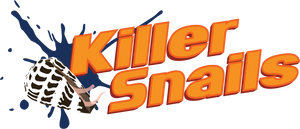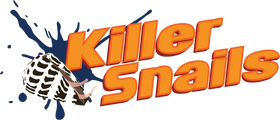Turning Downtime into Active Learning Time

As many families are now facing the challenge of schools closing due to the coronavirus, we’ve put together a list of resources to help keep children engaged with learning.
Each of these impactful products has been developed using extensive pedagogical research and can support children learning offline and online with any kind of screen available, e.g. phones/chromebooks/ipads/computers. We’ve compiled by subject area and grade to help families maintain their children’s curiosity and intellectual growth while staying safe inside. The games listed are available for free or at varying costs, several online games have free 30 day trials.
Literacy (K-12)
TableTop (screen free)
Scrabble - Oldie but goodie to improve literacy and vocabulary.
Screens (phones/chromebooks/ipads/computers)
TumbleBooks - TumblePremium collection has over 1100 titles with content most appropriate for those in grades K-6. Perfect for early readers who want a variety of engaging books that can be read to them!
HOMER- HOMER’s mission is to provide the best educational start possible by offering personalized, fun, and proven learning products for children ages 2-8.
Audible - is the world’s largest producer and provider of spoken-word entertainment and audiobooks. This is a great way for children to listen to books that are more challenging than they might read on their own.
Science (K-12)
TableTop (screen free)
Biome Builder - In Biome Builder, budding ecologists discover diverse creatures across four distinct biomes: Amazon Rainforest, American Prairie, Sahara Desert, and Pacific Ocean. Players create food chains in this fast-paced card game but BEWARE! Action cards can upset the balance of these ecosystems. Race to build the richest food chains and ensure the survival of your biomes!
Cytosis - Cytosis: A Cell Biology Game, is a worker placement game that takes place inside a human cell! Players take turns placing workers on available organelles within a human cell in order to collect resources (such as Carbohydrates or ATP!) or take actions (such as purchasing Cell Component cards or translating mRNA into Proteins!)
Players use their resources to build Enzymes, Hormones, and Hormone Receptors and also to help detoxify the cell - all of which score health points. The player with the most health points at the end of the game wins!
Wingspan - You are bird enthusiasts—researchers, bird watchers, ornithologists, and collectors—seeking to discover and attract the best birds to your network of wildlife preserves. Each bird extends a chain of powerful combinations in one of your habitats (actions). These habitats focus on several key aspects of growth:Gain food tokens via custom dice in a birdfeeder dice tower, Lay eggs using egg miniatures in a variety of colors, Draw from hundreds of unique bird cards and play them. The winner is the player with the most points after 4 rounds.
Evolution - in Evolution players adapt species in an ever changing ecosystem with hungry predators and limited resources. Traits like Hard Shell and Horns will protect you from Carnivores, while a Long Neck will get food that others cannot reach. With over 12,000 different species to create, every game becomes a different adventure. So gather your friends and see who can best adapt their species to eat, multiply and thrive!
Assassins of the Sea - Assassins of the Sea is a strategic deck-building tabletop and digital game game where middle and high school students are scientists learning about venomous marine snails and competing to build the winning venom arsenal of potentially life-saving peptide compounds.
Screens (phones/chromebooks/ipads/computers)
Nasa- Nasa offers a number of interesting and educational games perfect for an elementary schools student. These free games, crafts and activities are a wonderful way to keep little ones entertained and learning
BioDive by Killer Snails- BioDive combines virtual reality (using a mobile phone) and online digital journaling to enable students to experience the life of a scientist. Middle school students take on the role of marine biologists investigating the delicate ecosystems of venomous marine snails. Throughout their expedition, students observe, discover, and hypothesize about abiotic and biotic factors that impact marine biodiversity.
PocketLab - Order online for delivery and middle and high school children can connect with a single button to a smart phone, tablet, Chromebook, or computer and instantly stream data that they can see and record. PocketLab has the same features as lab equipment that costs thousands of dollars but is low cost and intuitive to use.
History (middle and high school)
Mission US by Electric FunStuff Mission US is a series of adventure-style games that cast players in the role of young people alive during extraordinary moments in American history. These games are both fun and extremely informative!
iCivics- play award-winning games to learn about civics and government. Each iCivics game is playable in less than 45 minutes and iCivics games don't require prior knowledge -- they teach you everything you need to know to play!
Math (elementary)
Teachley These adaptive K-6 Math Games bolster student achievement with games and formative assessment data that drives instruction.
Woot Math Bring mathematics to life- close the gap with engaging, research backed solutions for the math classroom
Virtual Exploration
Google Expeditions- Expeditions (requires phone or iPad) explore history, science, the arts, and the natural world. Whether you’re roaming with dinosaurs or taking a look at Renaissance sculptures, there’s something amazing to explore for every subject.
National Geographic - The National Geographic Society is a nonprofit scientific and educational organization that pushes the boundaries of exploration to further our understanding of our planet and empower us all to generate solutions for a more sustainable future.
Coding
Hopscotch - targeted at age 8-14, the app helps children create games, turn drawings into animations, and build anything else they can imagine.
Code.org is now one of the most popular sites that offers free coding for kids 4-15. Each course is made up of a number of puzzles, videos, and activities.
As schools come up with contingency plans, parents can do the same and make sure their children’s down time at home is filled with creative, engaging learning games.

